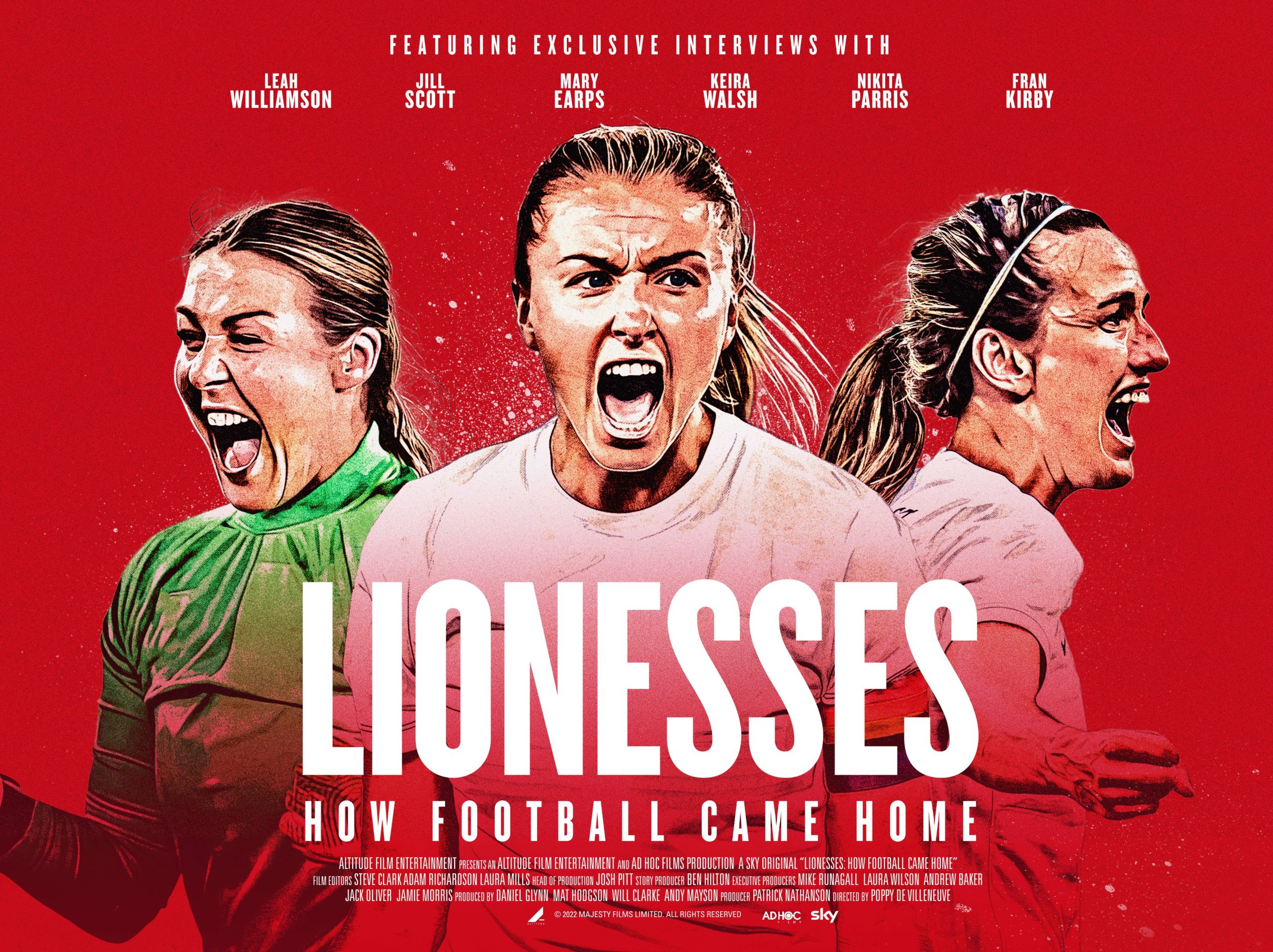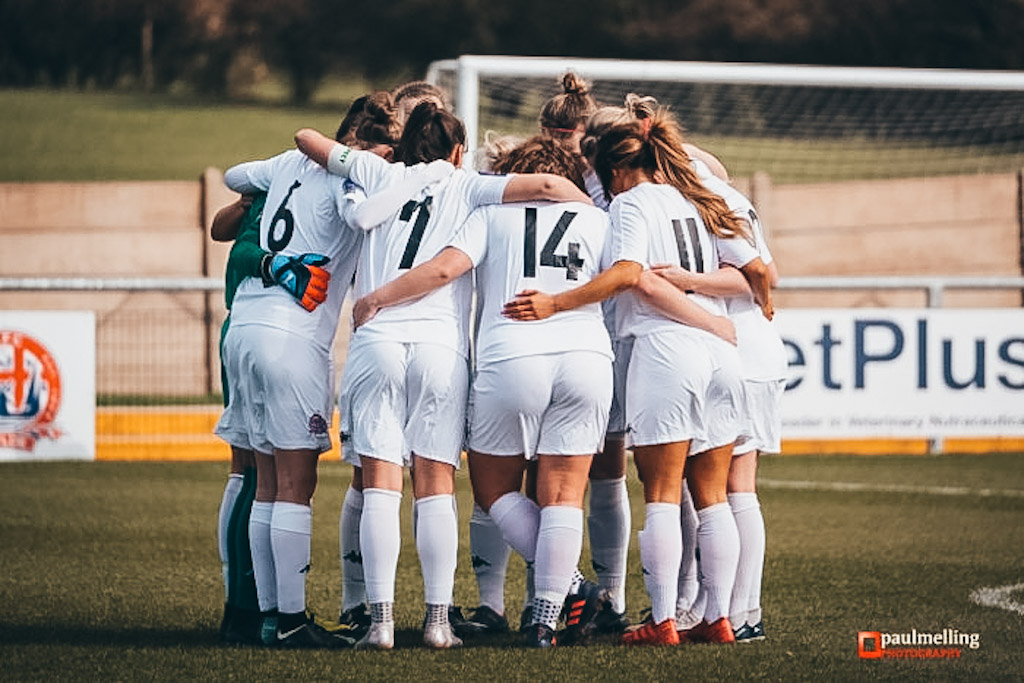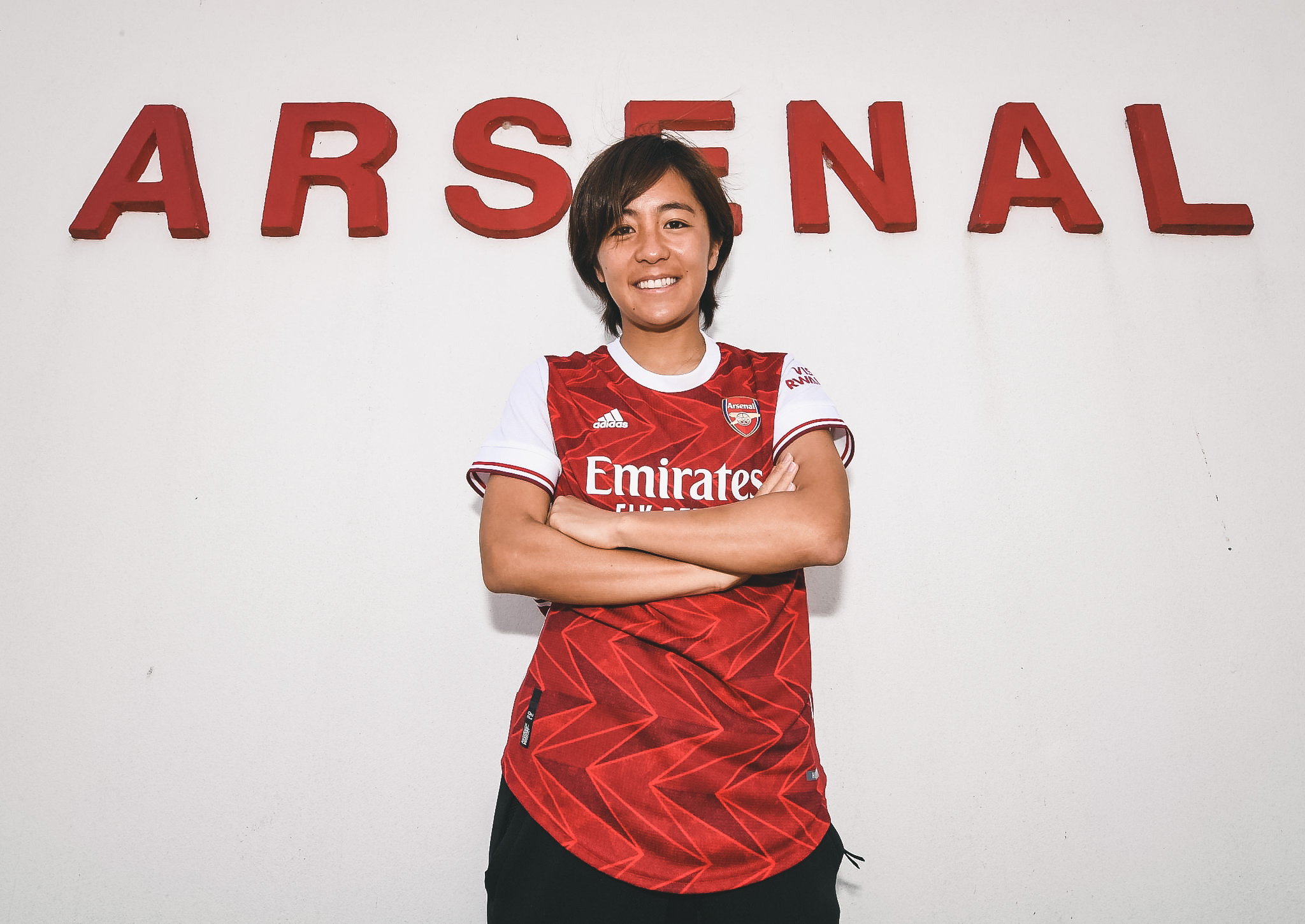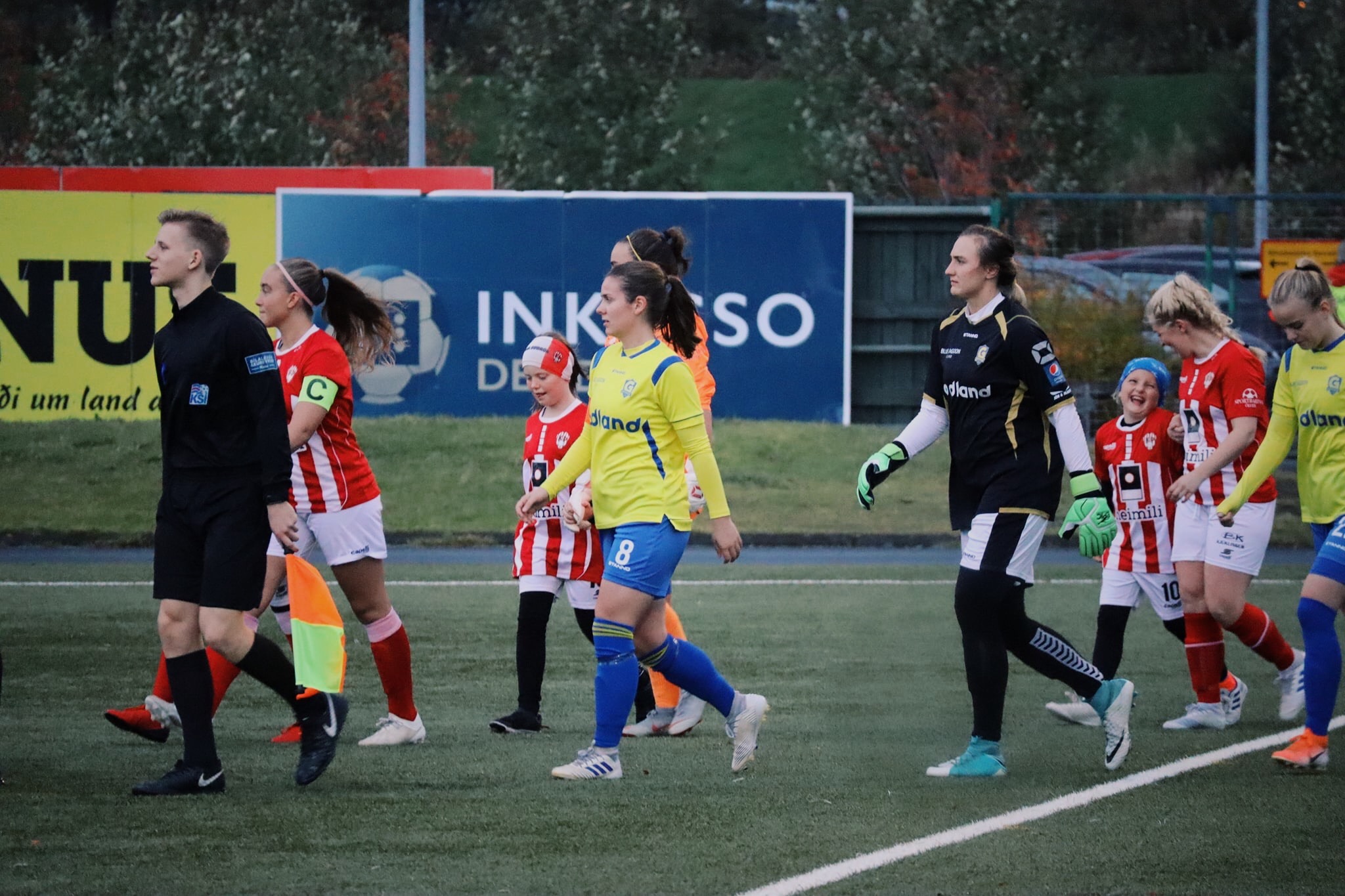While we battle through a bleak winter of near-constant rain and frost the memories of the scorching hot summer seem to be from an eternity ago. Likewise, with all of the excitement of the club season, the Lionesses’ European triumph also seems like an eternity ago. So the release of ‘Lionesses: How Football Came Home‘ was a timely reminder of their historic achievement.
The documentary, by Altitude Films, recounts the story of England’s historic Euro 2022 victory. it features behind the scenes footage and insights from those at the centre of the story, namely team captain Leah Williamson, Jill Scott, Mary Earps, Fran Kirby, Keira Walsh, Nikita Parris, Hope Powell, Carol Thomas, Faye Carruthers and many more.
While I was unable to make the London premiere I was fortunate enough to be able to get access to an advanced screener. Hopefully nothing that I can write would be considered a spoiler for obvious reasons but if you want to go into it fresh then feel free to close the article and know that you’ll be in for a treat!
We can all remember Alessia Russo’s backheel against Sweden, the great atmospheres at games and Chloe Kelly swinging her shirt in the air at Wembley but there were so many things that I’d forgotten about, for example, Russo’s goal against Sweden wasn’t even her best goal of the tournament and arguably wasn’t even in the Lionesses top three goals scored in the whole competition.
Williamson recalls how Sarina Wiegman’s asked her for a chat, fearing the worst and asking herself, “She’s been here five minutes, what could have I done wrong?” Only to find out that Wiegman and the coaching team wanted her to take the captaincy in the upcoming match. These short insights into the player’s personal journeys only make you warm to them even more than before.
As well as recounting the journey to the final, the film looks back at the history of the women’s game and the journey that the England team has been on in the last fifty years to get to this point. Former national team captain, Carol Thomas, explained how the men in suits at the FA decreed that the women would only play thirty-five-minute halves and used a smaller size four football during a two-legged match against Sweden in 1984.
The home leg was nicknamed the ‘Battle of Kennilworth Bog’ but the first battle the team faced was to find a venue as to many stadiums within London refused to host the match. Luton Town stepped in despite their pitch being more mud than grass, it was described by Hope Powell as “atrocious” and one that would have never been played today. When you listen to Thomas and Powell you can hear in their voices the pride they had being part of that team, something that the current crop echo when talking about their experiences within the England squad.
The documentary’s director, Poppy de Villeneuve did a magnificent job of capturing the drama of England’s quarter-final against Spain at Brighton & Hove Albion’s Amex Arena. I was fortunate enough to be there and fortunate enough to meet the Arsenal contingent of Jordan Nobbs, Steph Catley, Jen Beattie and Manu Iwabuchi in the car park prior to the match.
I vividly remember the apprehension going into the game and the disappointment when Real Madrid’s Esther González opened the scoring. With no sign of an equaliser, the tension began to rise in the stadium as the hope slowly slipped away, you couldn’t blame the crowd as we’d been here so many times before. The shots of the crowd brought it all flooding back, especially the elation when Ella Toone equalised to take it to extra time. When I saw Georgia Stanway hit the winner in extra time I almost jumped out of my chair again!
Throughout the documentary, there are images of fans before, during and after games, whether that be in the stadium or at organised events across the country. These are a great touch from de Villeneuve, it transported me back to the summer and I believe that anyone who attended an England game then it’d do the same to you and for that reason, this is a must-watch for any England fan.
The documentary is available to purchase digitally to stream or via DVD for £9.99. I would say that this price is an absolute bargain as this documentary is timeless and is certainly something that I will revisit in future. I cannot wait for my two-year-old daughter, who already watches “girl football”, to watch it with me and relive this experience.
For more information on how you can get your copy please visit altitude.film/lionesses-how-football-came-home.









